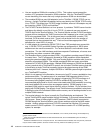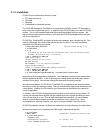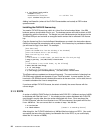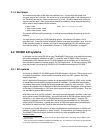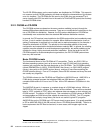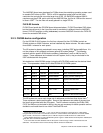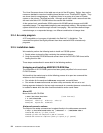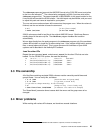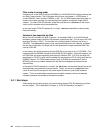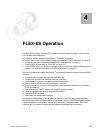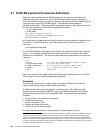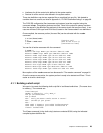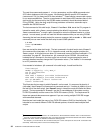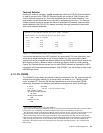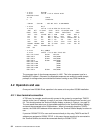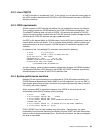26 S/390 PID: ThinkPad Enabled for S/390
Files unzip in wrong order
Unzipping one of the 3390-3 volumes (OS3RA9) for the OS/390 R9 AD system produces the
two files in reverse order. (The R10 system did not have this problem.) In OS/2 terms, it
unzips OS3RA9_2.A81 and then OS3RA9_1.A81. For an OS/2-based system this does not
matter, since these are really two separate files (that together constitute a single 3390-3
volume). For older FLEX-ES releases, these files must be fed to ckdconvaws in the correct
order, and this involves using intermediate files.
In the most recent FLEX-ES releases (6.1 or later), ckdconvaws handles the reverse-order
files automatically.
Volume in two separate zip files
Many of the AD volumes are 3390-3 volumes. An emulated 3390-3, on the OS/2-based
emulation systems used to build the AD releases, requires two files. (This is due to the 2 GB
maximum file size on OS/2.) The two files are normally placed in the same zip file on a
CD-ROM. The ckdconvaws program, when used as documented in this redbook, combines
the two files (contained in the single zip file) and produces the single emulated 3390-3 file
used by FLEX-ES.
In rare cases, the zip file containing the two OS/2 files is too large to fit on a CD-ROM. (This
happened with the OS39DA volume for the OS/390 R10 AD system.) When this happens, the
two OS/2 files are zipped separately and placed on different CDs. (For R10, the larger file
was placed on CD #5, by itself, and the smaller file was placed on CD #3, which also held the
OS39M1 volume.) For OS/2-based systems (such as P/390s and emulated I/O on the
MP3000), this is not a problem because the two files are unzipped and restored as two
separate files.
In the latest FLEX-ES releases (6.1 or later), the ckdconvaws command will handle the two zip
files separately and produce the correct results. That is, you would run ckdconvaws twice
(once for each zip file) and point to the same output file name for your S/390 emulated
volume. This is a considerable improvement over earlier releases, where a moderately
complex procedure was needed to handle this situation.
3.4.1 Next steps
After loading the operating system, we need to make various FLEX-ES definitions and then
test the system. This is described in Chapter 4, “FLEX-ES Operation” on page 27.



